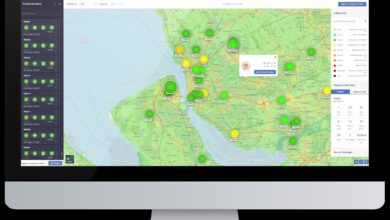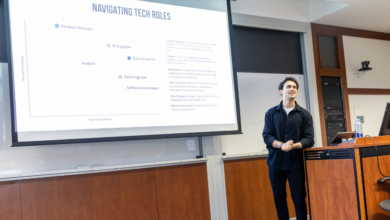Europe’s biggest ticketing marketplace – TicketSwap

Global ticketing marketplace TicketSwap says use of digital analytics software has improved its sales process and reduced the number of unsold tickets, resulting in a 10% direct revenue increase.
Since becoming a customer of its Amplitude Analytics in 2022, the company also says it can monitor user interactions at every step of its buying and selling digital funnels in real time, and flex performance marketing campaigns accordingly.
For example, according to its Head of Product Data & Growth, Nurkan Kirkan, it is now better able to segment customer data in real-time, and also understand different seller and buyer behaviors.
Other benefits include anomaly detection that helps it more quickly identify and counter the huge problem of online “ticket touting” (using bots or other means to buy tickets for sell-out events, to sell them at higher prices).
Kirkan says:
We were using a tool to tap into our data and to optimize campaigns, but we could only do surface-level analysis.
Now, by identifying the right customer segments to target, analytics helps us create impactful business opportunities.
Creating a ticketing environment of trust
TicketSwap – founded in 2012 and now a 150-strong global company – claims to be the safest way to buy and sell tickets online for over 6000-partner events.
The system works as a micro-transaction marketplace where concertgoers can sell tickets they can’t use.
Based in Amsterdam, the company also claims to protect buyers from overpricing by keeping to a maximum 20% mark-up on the original sales price.
Other important features of the system are ease of use and trust.
Kirkan adds:
If you want to go and see Taylor Swift ‘Eras’ somewhere in Europe, you just need to open our platform and see if there is an available ticket for a Taylor Swift concert.
It shouldn’t matter if you’re 70 or 50 or 20 or 10 years old – we want you to be able to use the platform without any hassle. We want to make our environment as safe and transparent as possible for the people who like to go to concerts, sports events, comedy shows, and more.
The company has been a user of analytics software to help it best service customers – who, it says, sell and buy at least three million entertainment experiences a year through it.
However, its existing CRM system was failing to deliver the level of visibility into customer wants and needs it felt was now necessary.
The final driver for a new approach to supporting users was a growing problem with non-completed transactions.
Allied to the fact that its incumbent system was seen as delivering poor data quality, whose results couldn’t always be relied upon, it really was time for a change.
Kirkan says Amplitude was chosen as the basis for a completely new approach to understanding the TicketSwap customer journey due to its functionality and tooling.
TicketSwap also wanted a solution that would integrate with other important systems, like its primary Business Intelligence application, Looker BI.
Therefore, the need to preserve existing data was identified as a major project deliverable.
Kirkan and his team said that the vendor’s commitment to port all in-house data and dashboards sealed the deal.
Implementation took two months, he says.
After a six-month period of parallel use of both systems to ensure continuity, Amplitude then became the main TicketSwap platform.
Solving two big sales blocks with analytics
A key early win was resolving that unsold ticket issue.
Kirkan says that a deep dive into the problem showed that the platform was sometimes failing to confirm uploaded ticket details.
That meant users couldn’t complete their listings – leading to abandoned site visits.
He says after careful tracking of error messages in the sales process, by use of custom data dimensions, this opened a way to improve the process.
Use of the vendor’s ‘Audience’ tool – a way to segment users via ‘cohorts’ (groups of users exhibiting similar activities) – was also informative, he says.
Kirkan adds:
We used the platform to determine which specific user groups were experiencing issues and what error messages they had seen.
Once we had resolved that problem, we used CRM and social media marketing campaigns to tempt these groups of users back to the site.
The program led, he says, to a measurable 15% rise in sales, as users were reassured they would now always be able to complete a legitimate ticket upload.
Another big win was in making significant progress in getting unsold ticket inventory moving.
At a consistent 10%, this had been a gap puzzling the company for some time, he says.
At least part of the answer, it emerged: analysis showed that Gen Z TicketSwap concert goers tended to make decisions at the last-minute, and often on a strictly budget-conscious basis.
But by better targeting and personalization for such potential customers, Kirkan claims that the company improved its unsold rate by 2% points in its established markets, and 5% in new ones like Brazil.
He says:
As every point represents tens of thousands of sales, even a 1% increase helps us to gain a lot of additional revenue.
Next steps
Two years post-rollout, the majority (60%) of TicketSwap employees now use the system – often in the form of their own customized dashboards.
Kirkan is particularly pleased with the way the Amplitude Data feature means TicketSwap developers can often deliver a solution with a single line of code, how powerful the vendor’s SDK is, and how well it has proven to integrate with the overall tech stack.
Recently, the tool has also been involved in better understanding user search.
He says:
You might come to our platform and might search for the new Arctic Monkeys tour, as you assume that they are available on our platform, but maybe you don’t get a hit.
Now, we can store all these queries in one place for our content team. On a daily basis they go through the queries, and if there is no search result for a specific query, they try to understand why we don’t show a result for this specific search query. Once we understand if the event doesn’t appear for the user when they search, we can easily fix that search query and add additional triggers.
Next steps for this technology at TicketSwap include use of insights to run experiments to try and see how to improve the customer experience – from authentication, login, sign up, and to buying and selling.
He concludes:
We are super-excited to have this functionality, because now we can do everything through one tool instead of distributing our work across multiple platforms.
That’s a problem because when there are multiple platforms, you need to find a way to understand the results. Even our five fingers are not the same, right?
Now, we have one finger to do everything. And that is fantastic.



